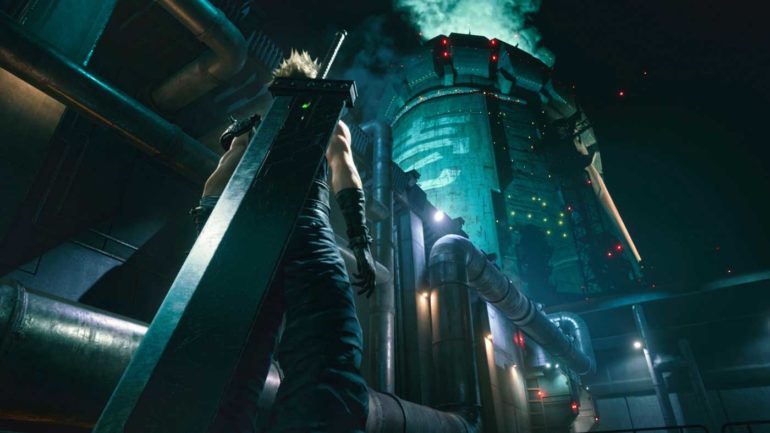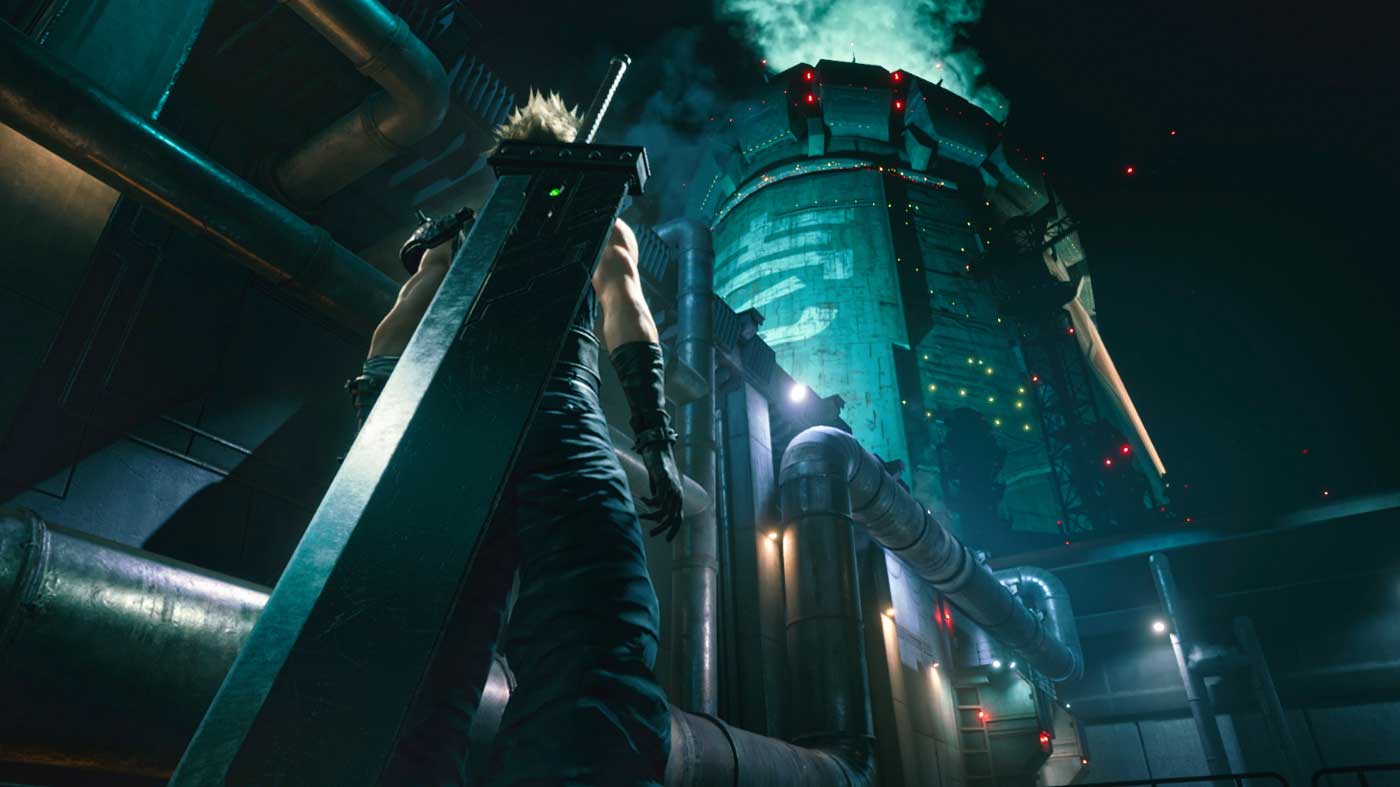Once upon a time, powerhouse Japanese developer and publisher Square Enix decided to produce a short tech demonstration to help Sony show off the power of the PlayStation 3 console. That demo consisted of a recreation of the opening moments of an all-time classic JRPG from the original PlayStation, Final Fantasy VII. It wasn’t the first time Square Enix had done something of the sort, a similar tech showcase was created for the PlayStation 2 that featured Final Fantasy VIII. This time though, fans had a lot to say about it. They wanted a remake of the game to happen for real, and one Yoshinori Kitase, director of the original game, was listening. Fast forward a decade later and, after a tumultuous development period that occasionally had fans concerned it would never eventuate, Final Fantasy VII Remake is here.
Let’s get this out of the way – Final Fantasy VII Remake is not a replacement for the original game, and it’s not intended to be. This is a re-envisioning that sits alongside it, taking the game’s first act and imagining all of the little details that were omitted or not yet delved into the first time around. It’s important to look at it this way to avoid disappointment, and there will no doubt be people disappointed regardless, but that’s fine. Casting aside expectation yields reward here, and that reward is one of the richest, most exhilarating, charming and impressive action games I’ve played in a long time.
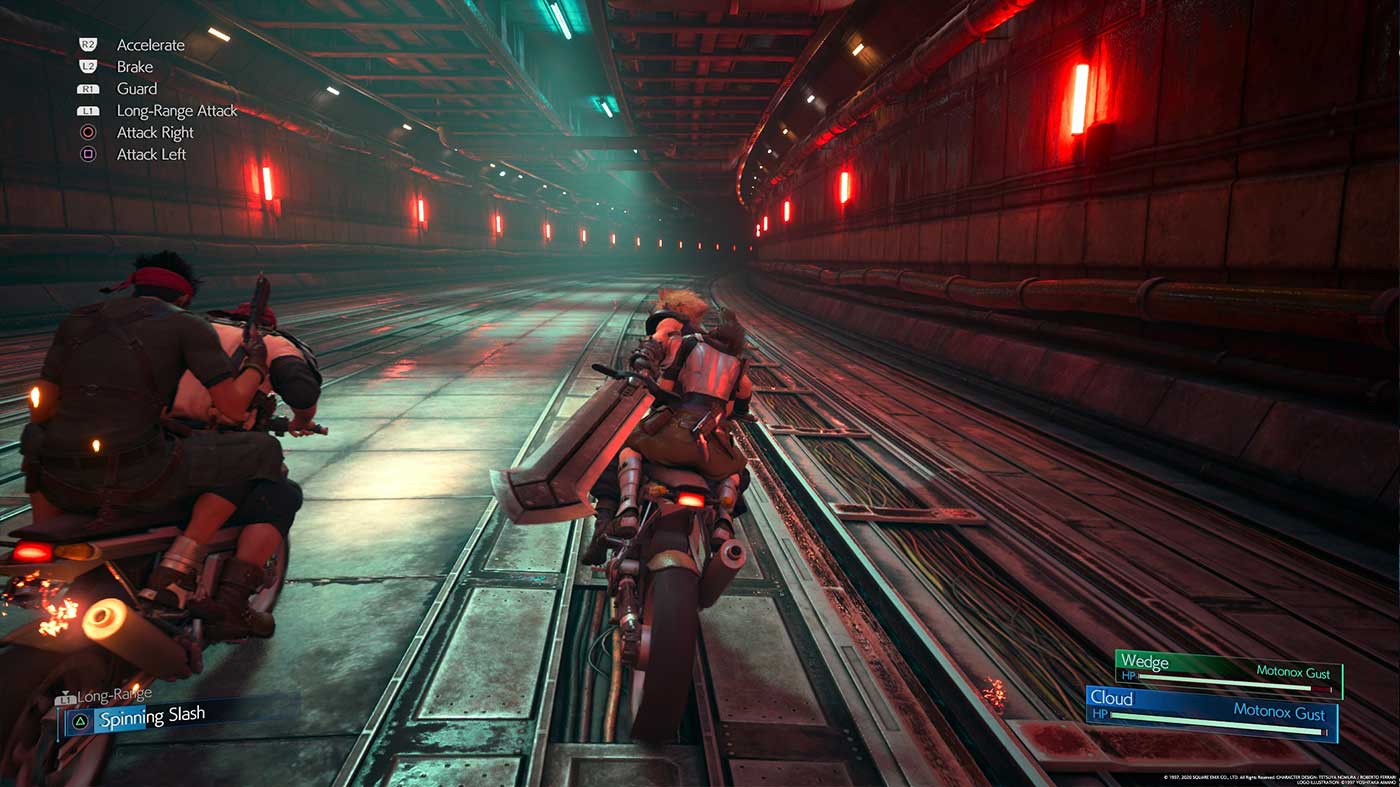
Final Fantasy VII’s story of a ragtag group of eco-activists attempting to take down Shinra, the power company slowly sucking the life from the planet and controlling the city of Midgar from behind the scenes, will be familiar to most gamers eager for the Remake. It’s also been something of a point of contention in the lead-up to release because, yes, this version of the game only covers the Midgar portion of the story, ending roughly where Final Fantasy VII’s first of three discs concluded. It’s easy to see why that might be disappointing, there’s a big world and a whole lot of game missing, but given the depth with which the story has been fleshed out in this small portion alone it’s understandable. This is definitely still a complete game that will take most players upwards of 40 hours to complete in full.
The great news is that the Midgar portion of the story that is here has been retold spectacularly. The obvious benefit to the Remake is that so much of what transpired between the events in the original that couldn’t be shown due to time or technological restraints has been fully explored here, and fantastically so. The writing team have truly outdone themselves here – every character is represented faithfully, dialogue is impeccable, genuinely heartfelt and often surprisingly funny. Characters that never had their chance to shine previously, such as Jessie, Biggs and Wedge, have had an excellent glow-up this time; those three in particular being a highlight. Simply being able to walk the lively streets of the slums and see how the events of the game affect the citizens’ daily lives enriches and adds palpability to the existing story.
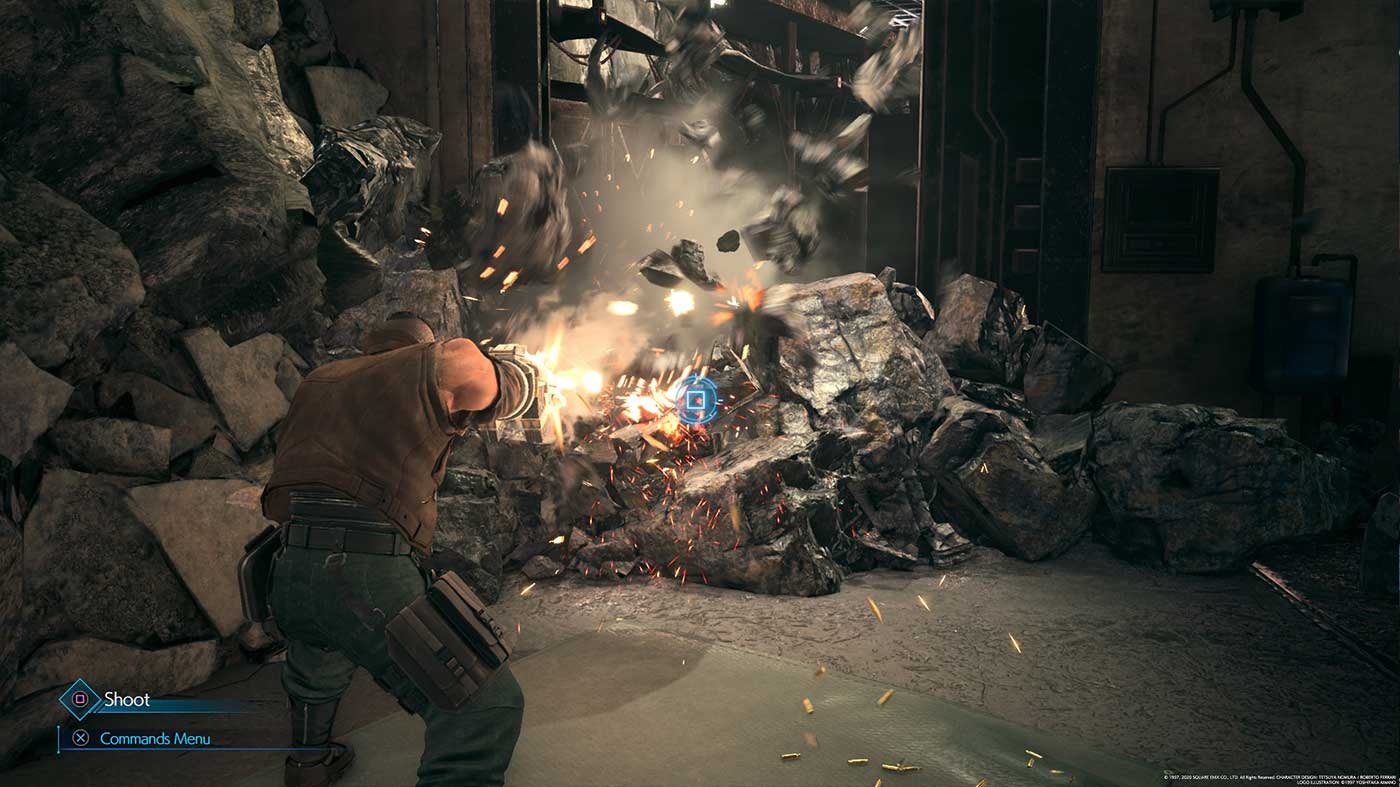
As far as how that story is presented, Final Fantasy VII Remake’s journey takes place over 18 chapters, with some being mostly linear runs through certain scenes or locations while others represent small ‘hub’ areas that allow for some freedom in interacting with the world and tackling side objectives. Side quests are mostly innocuous, fetch quest-variety diversions but they help to add a bit of flavour to the overall world. I enjoyed tackling the game’s ‘Battle Intel’ challenges that reward players who achieve certain conditions in battle with new Materia, including most of the game’s summons. There’s also a hefty post-game with chapter replay and an added ‘Hard Mode’ that disables items and most forms of MP recovery – it’s no walk in the slums, that’s for sure. The overall format works well, with the story moving along at a cracking pace for the most part, and the hub sections offering welcome respite along the way. Some of the level design in the dungeon-ish areas can veer into ‘I just saw Cloud jump three floors but now I’ve gotta spend 30 minutes moving robot arms around because he can’t reach a ladder an arm’s length away?’ territory, and the penultimate chapter is a bit of a drawn-out slog, but those are minor stumbling blocks in the game’s attempt to bridge the gap between nostalgia and modern game design.
As if years of fan squabbling hasn’t made it clear already, Final Fantasy VII Remake ditches the original game’s turn-based battles in favour of real time, action combat. That’s always going to be a pretty big pill to swallow for die-hards, but the good news is that the updated combat is excellent. Things start out similarly to something like Final Fantasy XV, with Cloud’s basic combos mapped to a single button that’s simply held down to attack, and a gradually-filling ATB gauge dictating use of special moves. Once the other party members and RPG systems come into play though, things become very different. For starters, you’re able to control any of the characters in your party of three by simply switching between them, or using the Tactical Menu to slow the action down to a crawl to issue commands for everyone. The Tactical Menu is a great compromise for those looking for that classic Final Fantasy VII combat feel, and there are further options for taking some of the edge off for those not inclined to play action games.
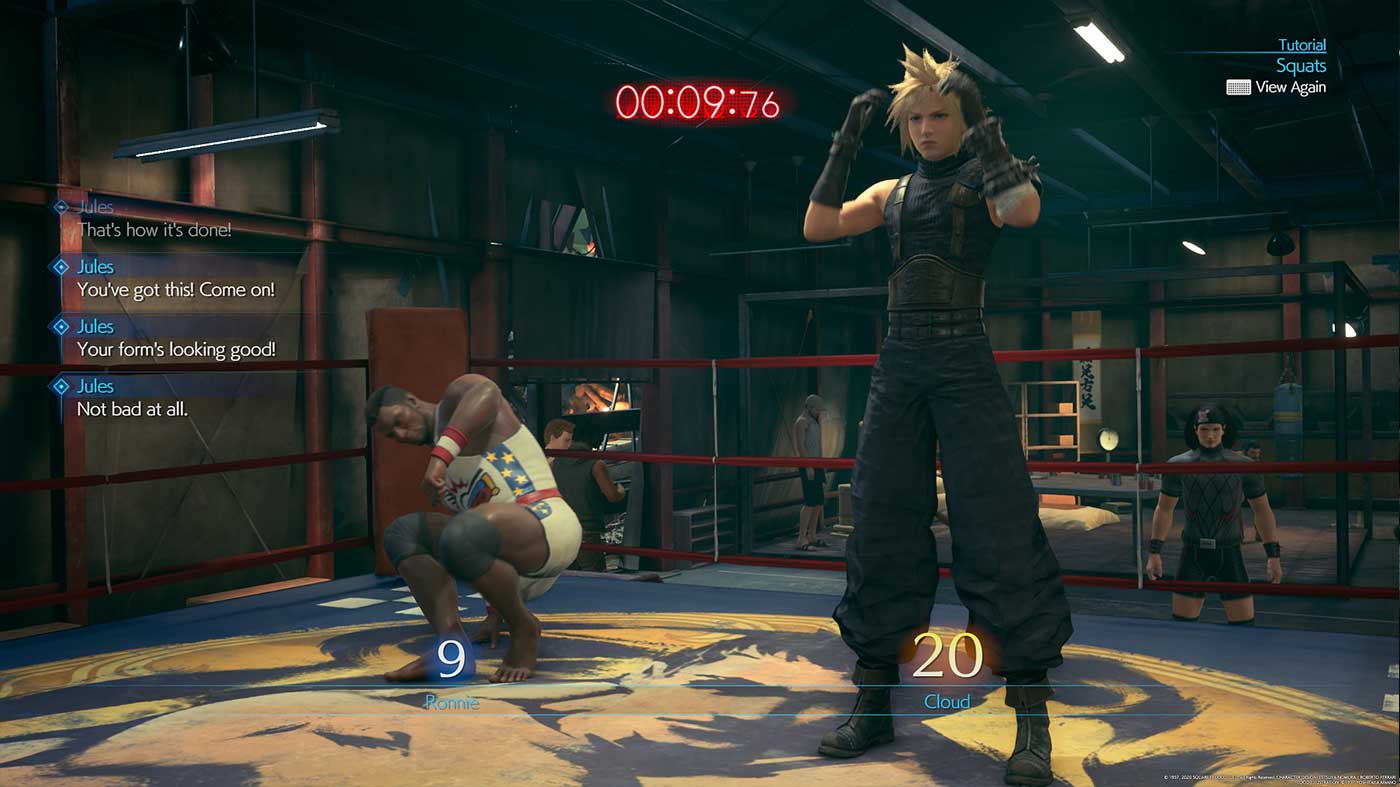
Of the four available characters, I had the most fun with Tifa, whose button-mashing hand-to-hand brawling feels a lot more immediate and visceral than the other characters’ primary attacks. Each feels different enough though that most people will find a favourite. Aside from their specific attacks and moves learned from weapons, most magic abilities and combat tweaks can be equipped to anybody, and everyone’s weapons and stats can be modified to suit. This means that it’s easy to tailor your team to suit most combat situations, which is handy because for most of the game you’ll have no choice in who your party is made up of due to story requirements. No matter the circumstances though, combat is always fast, fun, visually exciting and accommodating of both ‘casual’ playstyles and deeper strategising. My only real gripe with the combat is how easy it is to have an action interrupted by an enemy or other event, which can lead to wasting a lot of ATB or even Limit Break gauge.
One important returning mechanic is the Materia system. The Final Fantasy series has experimented with many different character progression systems in its storied history, some with more success than others, but Materia has always been a favourite. Just as before, everyone’s weapons can be fitted with Materia that gives them new abilities, spells and other augmentations. A majority of the Materia have been carried across intact, but there are also a few new ones that play more into the real-time combat and unique party setup. There are a fair few abilities and accessories that cater specifically to characters you’re not controlling, to either automate their support or set up tandem attacks with your party leader, which helps take some of the pain off micro-managing and makes for some good emergent strategies.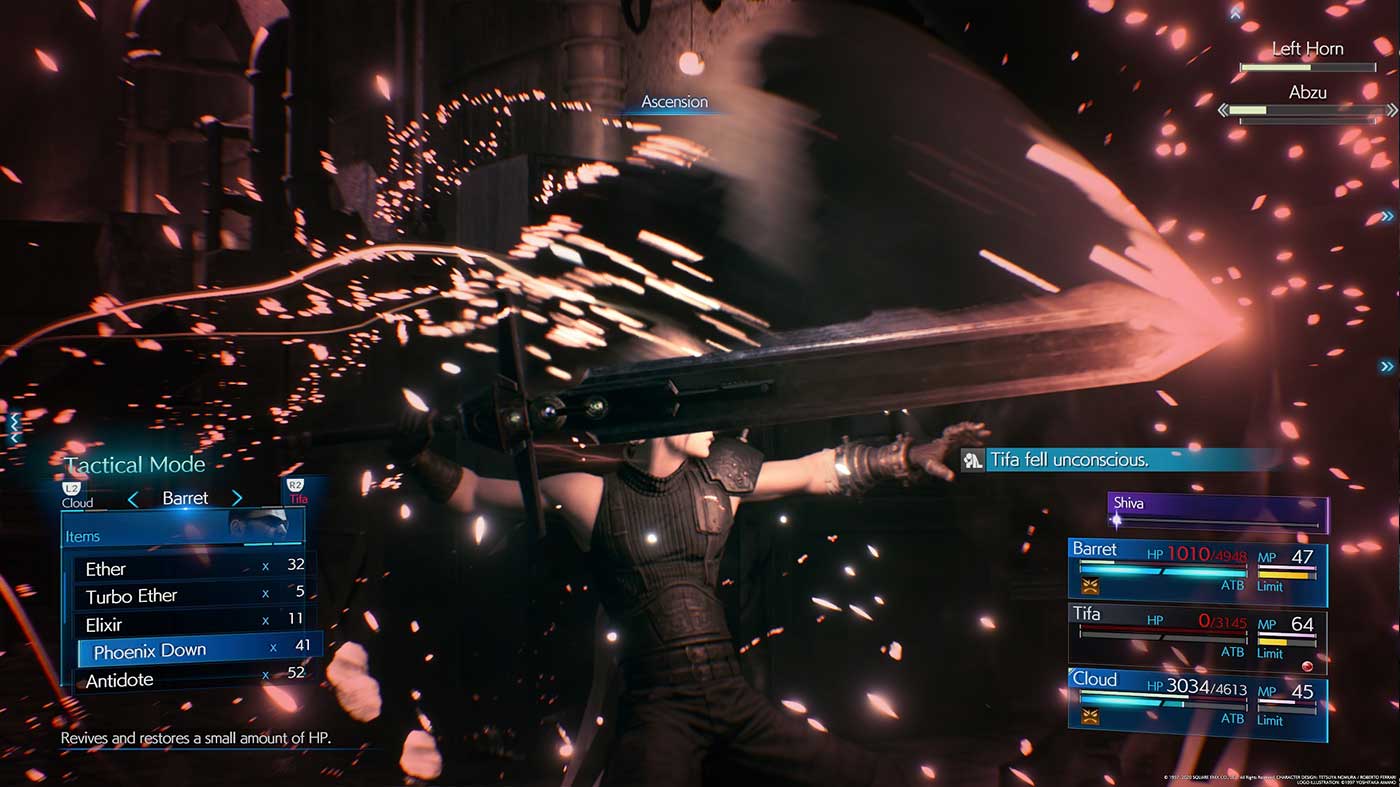
Not only did I find myself spending way too much time making my Materia builds as aesthetically pleasing and colour-coordinated as possible, I found I was actively changing things up to suit the fights I was getting into, which is something I don’t usually give enough time to in games. I only wish there was an easy way to see what Materia is equipped on a weapon without having to go in and inspect each one. Still, tinkering with Materia is a hell of a lot of fun, it’s a deep and rewarding system that calls back to a hallmark of the original game that works shockingly well in this new context.
That’s the thing about Final Fantasy VII Remake that truly makes it special – despite being a wholly new and modern game, so many of the original’s ideas and intricate details have managed to make the transition. Most impressively, there are very few instances where something feels out of place or shoehorned in for the sake of nostalgia, even when the game calls back to some of the… quirkier stuff. The annoying, timed levers in Reactor Five, the environmental takedowns in Aerith’s church, the robot arm puzzles in the collapsed freeway – it’s all here. Plus if you’ve played and remember much of Final Fantasy VII, you’ll know that some of the game’s enemy designs were pretty out there. The kinds of designs you’d never expect to make the cut in a remake. Except a lot of them have, and it’s fucking awesome.
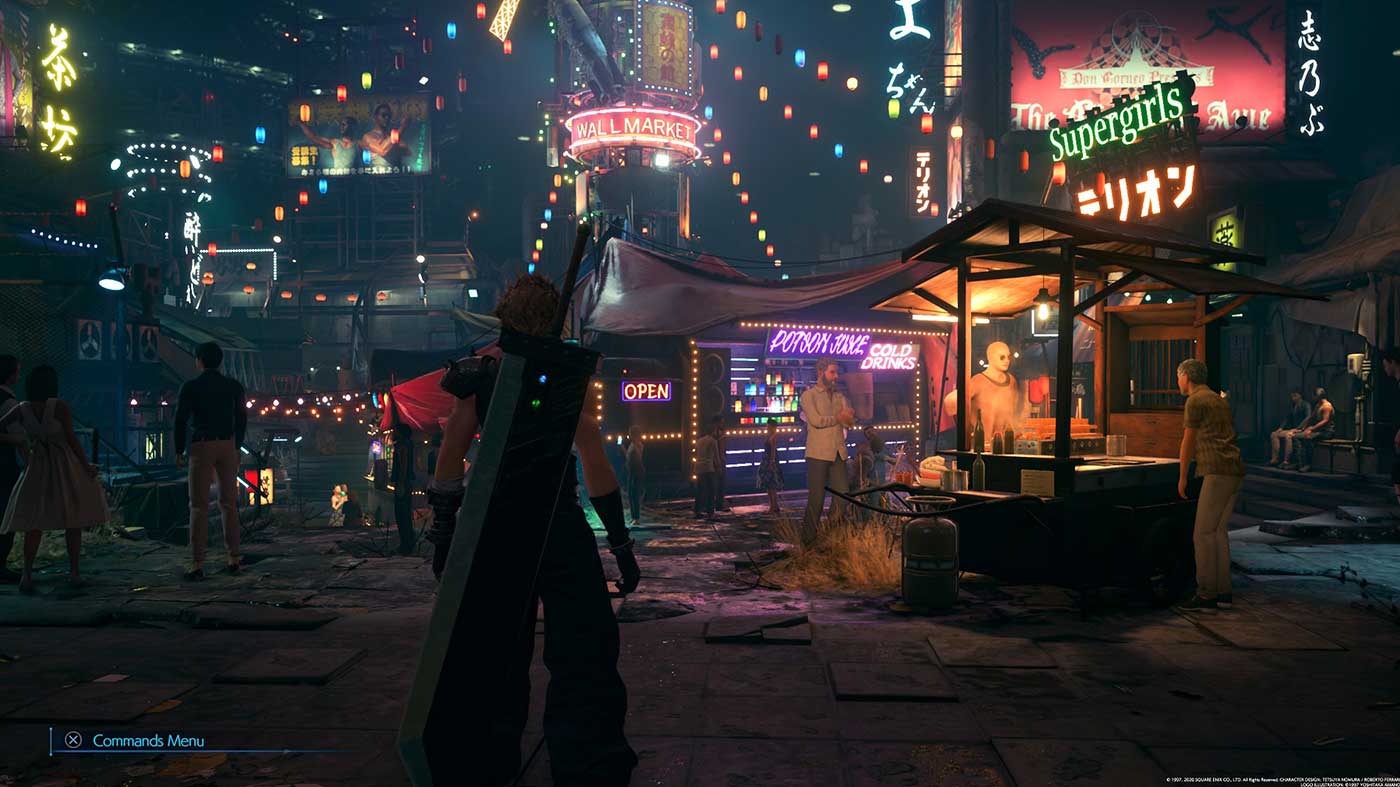
Not just oddball enemies either, but things like minigames, puzzles and whole areas that throw back to the original in charming ways. Going in I had concerns that Final Fantasy VII Remake would be overly stern and navel-gazey, akin to something like Advent Children, but for the most part it’s not. It wonderfully captures the quirkiness and the off-kilter attitude that Final Fantasy fans love (at least until towards the end where it feels like Nomura took the reins for a bit). Even its classicaly stern, navel-gazey protagonist Cloud gets the opportunity to be a bit more of a sassy, reluctant sex-symbol, especially in one particular chapter. If I had to make one argument for whether fans should play this game, it’s Chapter Nine. This whole Remake had to exist just to that Chapter Nine could exist.
There’s a definite sense with the ending that the team tried their best to give Remake some sense of closure though, and to that end there are some pretty significant departures from the original in the way that events play out. That’s always going to be tricky, given how attached people are to the original game, but there are definitely some issues even outside of fandom subjectivity. I’m not at liberty to spoil anything, of course, but I never quite gelled with a mysterious new force that’s been written into the story. It feels like it’s been retconned in just to explain away story beats from the original that haven’t transitioned as gracefully, and also as a cheap means to include certain characters far earlier and more integrally than they really needed to be. The trade-up of course is that the game does end with something resembling closure, and it manages to double down on the fanservicing along the way.

If there’s one thing that nobody can argue with, it’s that Final Fantasy VII Remake is a veritable visual feast. I couldn’t have expected otherwise from the series, but it’s still truly impressive. Character models are the star of the show of course – you’ve never seen Cloud and friends with this much gorgeous detail before. Their meticulously crafted outfits and weapons, the pores and blemishes on their skin, that incredible hair. Environments on the other hand tend to sit between ‘breathtaking’ and ‘just okay’ with a lot of greys and browns dominating the colour palette, though that mostly comes from the source material. There are some surprisingly low-detail assets in play if you start to poke around, and I experienced some pretty egregious texture pop-in at times, but these are minor issues and taken as a whole the overall effect is typically stunning.
And sure, all that shiny graphical technology is great, but the true victory is just how well the aesthetic language of the original is captured. So much is gained in this new perspective and almost nothing is lost. Through clever use of bold lighting and shadows especially, and with little regard to ‘realism’ in a lot of ways, elements of environments look closer to original pre-rendered backgrounds than I could have expected. And then you consider the fact that you can now look upwards from the cramped and dingy slums and see the enormous plate cities of Midgar. It’s something quite special.
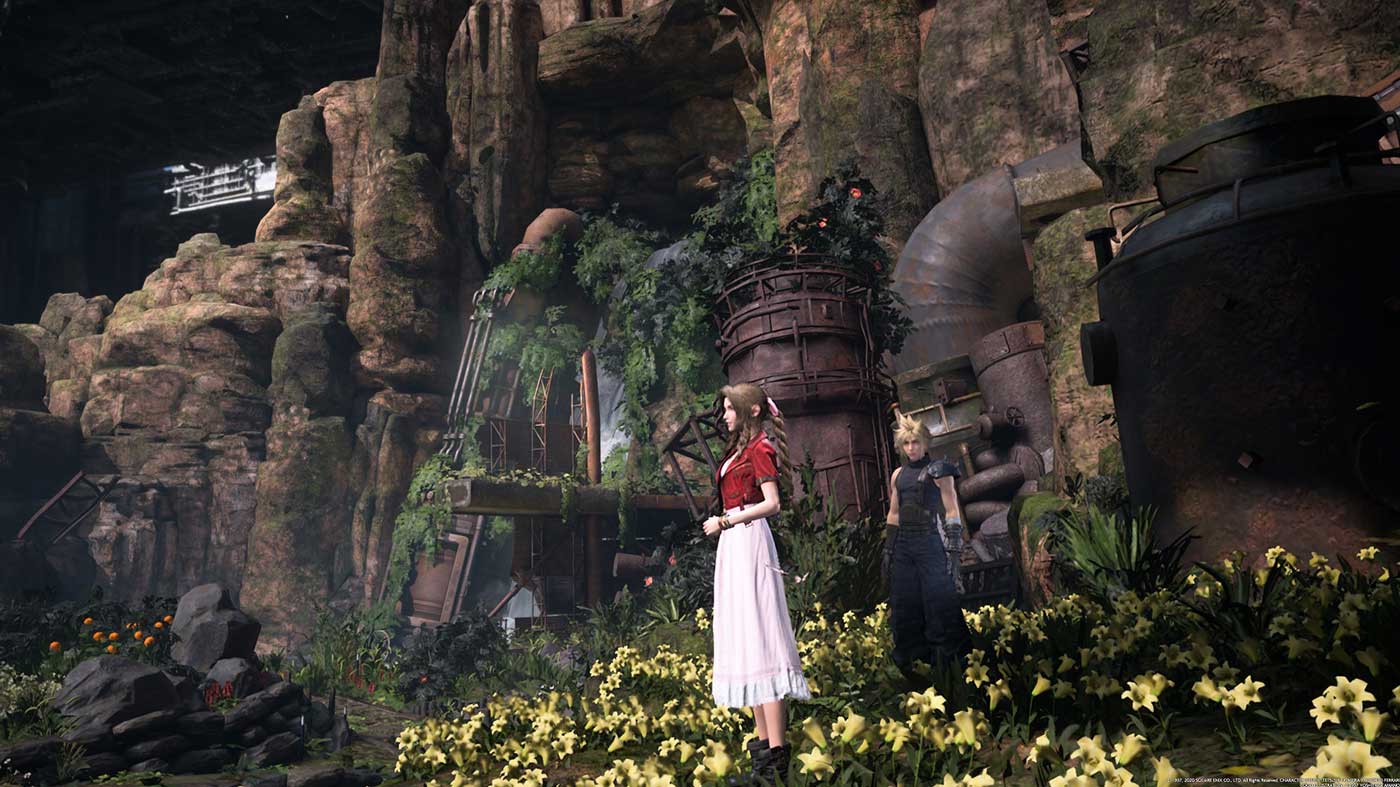
Equally special is the soundtrack, which takes the very memorable tunes of Final Fantasy VII and re-orchestrates and remixes them to better suit the new game. There’s not a single thing that I can fault with any of the new arrangements or their placement in the Remake. The scoring and musical beats in the game’s pivotal cutscenes, and the way they often use the most recognisable musical motifs at just the right moment had me jumping out of my seat and cheering. There are even a couple of banger electronic remixes of classic tunes, and ‘Hip Hop de Chocobo’ absolutely slaps.
Square Enix knows that fans are in this because of a deep passion for the original; the world it created and the characters that inhabit that world. You need only look at the millions of pages of fanfic, the countless, incredible cosplays and fanart and everything in between to see that. In putting together a team made up of some of the veterans who brought the original to life as well as developers from around the world that grew up playing it, they’ve ensured fans’ love for Final Fantasy VII has been equally met by the studio.
THE PLAYSTATION 4 VERSION OF THIS GAME WAS USED FOR THE PURPOSE OF THIS REVIEW. A DIGITAL REVIEW CODE WAS PROVIDED BY THE PUBLISHER.


